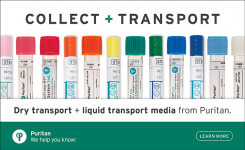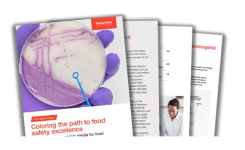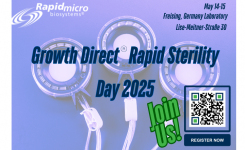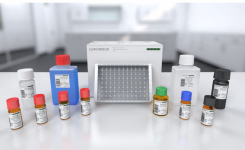Successful European evaluation for Staphylococci test kits makes food testing easier
go back to news archives| | Thermo Scientific's Staphytect Plus and Dryspot™ Staphytect Plus Test kits have been successfully evaluated under the European Microbiological Methods Assessment Scheme (EMMAS). |
| The Thermo Scientific kits showed very high levels of both sensitivity (98%) and specificity (97%) as well as offering the advantage of producing confirmed results 24-48 hours earlier than the standard Tube Coagulase method. All the laboratories reported the kits were easy to use and the reactions were clear to interpret. |
Source : Thermo Scientific. View archived contact details
Posted on August 29, 2002
















